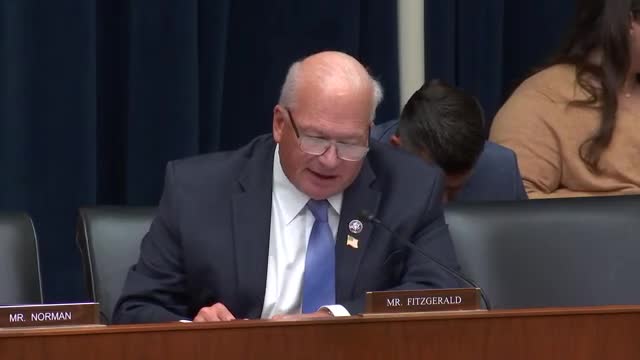Housing Crisis Deepens as Rent Control Policies Backfire

This article was created by AI summarizing key points discussed. AI makes mistakes, so for full details and context, please refer to the video of the full meeting. Please report any errors so we can fix them. Report an error »

In a recent government meeting, discussions centered on the escalating costs of housing and potential regulatory reforms aimed at alleviating these financial burdens. Key participants highlighted the significant impact of federal regulations on housing affordability, with particular emphasis on the Environmental Protection Agency (EPA) regulations, the Waters of the United States (WOTUS) rule, and the Endangered Species Act. These regulations contribute to an estimated $93,000 increase in costs per home, complicating efforts to develop affordable housing options.
Representative Loudermilk introduced a proposal for a portal to streamline appraisal licensing, which aims to create uniformity in licensing applications and background checks for appraisers. This initiative is part of a broader effort to reduce regulatory barriers that hinder housing development.
The meeting also addressed a recent policy proposal from the Biden-Harris administration that would restrict landlords with 50 or more units from claiming depreciation deductions if they increase rents by more than 5% annually. Critics, including Mr. Schlomer, argued that such rent control measures have historically led to a decline in new housing supply, citing the contrasting experiences of Minneapolis and Saint Paul. Following the implementation of rent control in Saint Paul, new apartment construction has nearly ceased, while Minneapolis continues to see growth in rental housing.
Schlomer emphasized that the rising costs of development—up 42% from January 2022 to June 2023—coupled with rent control, could deter developers from investing in new housing projects. He warned that this could lead to a deterioration in housing quality, as landlords may struggle to maintain properties under financial constraints imposed by rent control.
Overall, the meeting underscored the urgent need for regulatory reform to foster a more conducive environment for housing development, with participants advocating for solutions that prioritize increasing housing supply to address the ongoing affordability crisis.
Representative Loudermilk introduced a proposal for a portal to streamline appraisal licensing, which aims to create uniformity in licensing applications and background checks for appraisers. This initiative is part of a broader effort to reduce regulatory barriers that hinder housing development.
The meeting also addressed a recent policy proposal from the Biden-Harris administration that would restrict landlords with 50 or more units from claiming depreciation deductions if they increase rents by more than 5% annually. Critics, including Mr. Schlomer, argued that such rent control measures have historically led to a decline in new housing supply, citing the contrasting experiences of Minneapolis and Saint Paul. Following the implementation of rent control in Saint Paul, new apartment construction has nearly ceased, while Minneapolis continues to see growth in rental housing.
Schlomer emphasized that the rising costs of development—up 42% from January 2022 to June 2023—coupled with rent control, could deter developers from investing in new housing projects. He warned that this could lead to a deterioration in housing quality, as landlords may struggle to maintain properties under financial constraints imposed by rent control.
Overall, the meeting underscored the urgent need for regulatory reform to foster a more conducive environment for housing development, with participants advocating for solutions that prioritize increasing housing supply to address the ongoing affordability crisis.
View full meeting
This article is based on a recent meeting—watch the full video and explore the complete transcript for deeper insights into the discussion.
View full meeting